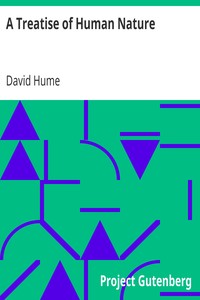A Treatise of Human Nature by David Hume
"A Treatise of Human Nature" by David Hume is a philosophical work written in the early 18th century. The book seeks to explore the underlying principles of human nature, with a focus on understanding the origin and workings of human thoughts and emotions. Hume delves into various topics of human experience, highlighting the relationship between impressions and ideas, and how these elements contribute to our understanding of reality. The opening of the
treatise introduces Hume's approach, emphasizing that all perceptions in the human mind consist of two distinct types: impressions, which are vivid and forceful, and ideas, which are their fainter representations. Hume proposes to categorize these perceptions and elucidate their qualities and relationships, especially focusing on how simple ideas derive from simple impressions. He aims to establish a foundational understanding of human nature that connects ideas and their origins, while also hinting at the broader implications this understanding may have on other branches like ethics and social philosophy. (This is an automatically generated summary.)
Read or download for free
| How to read | Url | Size | |||
|---|---|---|---|---|---|
| Read now! | https://www.gutenberg.org/ebooks/4705.html.images | 1.5 MB | |||
| EPUB3 (E-readers incl. Send-to-Kindle) | https://www.gutenberg.org/ebooks/4705.epub3.images | 647 kB | |||
| EPUB (older E-readers) | https://www.gutenberg.org/ebooks/4705.epub.images | 651 kB | |||
| EPUB (no images, older E-readers) | https://www.gutenberg.org/ebooks/4705.epub.noimages | 643 kB | |||
| Kindle | https://www.gutenberg.org/ebooks/4705.kf8.images | 1009 kB | |||
| older Kindles | https://www.gutenberg.org/ebooks/4705.kindle.images | 915 kB | |||
| Plain Text UTF-8 | https://www.gutenberg.org/ebooks/4705.txt.utf-8 | 1.3 MB | |||
| Download HTML (zip) | https://www.gutenberg.org/cache/epub/4705/pg4705-h.zip | 519 kB | |||
| There may be more files related to this item. | |||||
Similar Books
About this eBook
| Author | Hume, David, 1711-1776 |
|---|---|
| Title | A Treatise of Human Nature |
| Note | Reading ease score: 47.0 (College-level). Difficult to read. |
| Note | Wikipedia page about this book: https://en.wikipedia.org/wiki/A_Treatise_of_Human_Nature |
| Credits | Col Choat and David Widger |
| Language | English |
| LoC Class | B: Philosophy, Psychology, Religion |
| Subject | Knowledge, Theory of |
| Category | Text |
| EBook-No. | 4705 |
| Release Date | Dec 1, 2003 |
| Most Recently Updated | Nov 24, 2022 |
| Copyright Status | Public domain in the USA. |
| Downloads | 3584 downloads in the last 30 days. |
| Project Gutenberg eBooks are always free! | |

